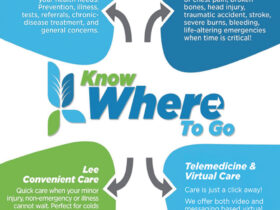LASIK is a quick and painless procedure that can give you long-lasting vision without glasses or contact lenses. That’s why, since its introduction more than 25 years ago, millions of Americans have turned LASIK for correcting nearsightedness, farsightedness and astigmatism and giving them visual freedom.
The LASIK team at Quigley Eye Specialists consist of a dedicated LASIK staff as well as LASIK surgeons Jeffrey Robin, MD, Duane Wiggins, MD and Emmanuel Kai-Lewis, MD. Drs. Robin, Wiggins and Kai-Lewis are all Board-certified ophthalmologists who have undergone fellowship training in LASIK and other types of refractive surgery and have decades of LASIK surgical experience and combined conducted tens of thousands of successful LASIK procedures. Beyond experienced and skilled surgeons, Quigley Eye Specialists has state-of-the-art diagnostic and laser technologies to help achieve the best possible LASIK results.
“LASIK is one of the most studied – and most successful – elective surgical procedures in all of medicine. At Quigley Eye Specialists, we realize that the keys to getting consistently great results with LASIK include proper patient selection, highly experienced staff and surgeons, and the most advanced laser technologies. My colleagues and I believe that at Quigley we have the best available, FDA-approved, diagnostic and laser technologies, including the Zeiss Visumax and Wavelight Allegretto lasers, and we are capable of producing great LASIK results with a quick, painless and bladeless procedure. And, we are committed to providing not only great vision results but also a concierge type of customer experience for our LASIK patients,” explains Dr. Robin.
LASIK FAQs:
What does “LASIK” stand for?
LASIK is an abbreviation for “laser in-situ keratomileusis”; which translates to using a laser to reshape the cornea. The cornea is the clear window on the front of the eye and is a very powerful focusing element for the eye. By changing the curvature of the cornea, the laser can – in an extremely precise and computer-controlled method – change the focusing power and improve vision without glasses or contact lenses.
What is nearsightedness, farsightedness, and astigmatism?
The eye is like a camera and has lenses (including the cornea) which work to focus incoming light rays on the visually sensitive retina which lines the inside of the back of the eye. For many people, incoming light rays aren’t focused precisely on the retina; this is called a “refractive error”. The most common refractive error is nearsightedness (also called “myopia”); in this condition vision is blurred at distance while up-close vision is usually good; nearsighted patients usually start wearing glasses or contact lenses at a young age. In farsightedness (also called “hyperopia”), patients frequently can have excellent distance vision but begin to develop reading difficulty at a younger than normal age; people with high degrees of farsightedness may have both blurry near and distance vision even at a young age. The causes of nearsightedness and farsightedness usually have to do with abnormalities in the length of the eye. In astigmatism, the cornea is not symmetric, meaning that one axis has a different curvature than the other axis; astigmatism commonly accompanies nearsightedness and farsightedness. Advanced LASIK lasers are usually capable of accurately correcting all of these refractive errors.
How does the LASIK procedure work?
Modern LASIK is completely bladeless and utilizes 2 lasers. The first laser creates an ultra-thin section on the front of the cornea (called the “flap”). The second laser – which provides the actual reshaping and vision correction – is applied under the flap. Both laser applications involve usually less than 30 seconds.
Will I feel discomfort?
Numbing drops – like those used in routine eye exams – provide excellent anesthesia during LASIK. The vast majority of patients experience no discomfort.
How long does the procedure take?
In most cases, both eyes can be treated in less than 20 minutes.
How soon do the eyes recover?
At the close of the procedure, you can expect vision to be improved although foggy. Usually within 24-36 hours, patients note vision similar to when they were wearing their glasses or contacts.
What about patient safety?
Thorough and careful preoperative evaluation is one of the keys to LASIK success. At Quigley Eye Specialists, we realize that not everyone is a good candidate for LASIK; in some cases, other types of refractive surgery may be offered and – uncommonly – we may advise that it is in the patient’s best interest not to have refractive surgery. In addition to performing a complete eye health evaluation and utilizing state-of-the-art diagnostic technology, at Quigley Eye Specialists your surgeon will be actively involved in your preoperative evaluation and recommendation process.
Who is a good candidate for LASIK?
The best candidates for LASIK are between the ages of 18 and 50 and have refractive errors (nearsightedness, farsightedness, astigmatism) that are in the low-to-moderate ranges. Patients also need to have good general health and no active eye diseases as well as having stable eyeglass/contact lens prescriptions. Specific candidacy determination, of course, will require thorough eye health evaluation with appropriate diagnostic testing and evaluation by your surgeon.
Who should not have LASIK?
People who might not be good candidates for LASIK include those who: are outside of the 18-50 age range, have changing prescriptions, have certain medical health issues, have active eye diseases or disorders. In some cases, patients’ lifestyles, activities or job needs may also be factors. At Quigley Eye Specialists, we recognize that not everyone is a good candidate for LASIK and that a thorough preoperative evaluation is the key to determining good candidacy. For some patients, we may recommend refractive procedures other than LASIK and for others we may recommend no refractive surgery at all.
Has LASIK technology become more advanced over the years?
Yes. Over nearly 3 decades, LASIK technology has advanced to enable to procedure now to be completely bladeless (“all laser”) and to have superlative accuracy and predictability. At Quigley Eye Specialists, our LASIK lasers (Zeiss Visumax and Wavelight Allegretto) enable our LASIK patients to have extremely comfortable procedures with accurate vision results.
Are there other options than LASIK?
Yes. Dr. Robin, Dr. Wiggins and Dr. Kai utilize other procedures to correct refractive errors and will make procedure recommendations based on their preoperative evaluation in discussion with the patients. Alternative procedures to LASIK include PRK, SMILE and ICL.
Are patients satisfied with results?
Yes. Scores of published studies, including those sponsored by the FDA and Dept of Defense, have demonstrated extremely high patient satisfaction results following LASIK (even more than 95%). It is not uncommon with modern LASIK for patients to achieve vision as good as or even better than they had with their best pair of glasses or contact lenses. Most Americans know family members, friends and/or co-workers who have had excellent LASIK results. We frequently hear from people that having LASIK was “the best thing I ever did!”.
What is the next step?
If you are considering LASIK, the first step is a complete eye health evaluation. After the evaluation, the specialists at Quigley Eye will discuss your vision goals and develop a customized treatment plan designed specifically for you.
Quigley Eye Specialists, founded in 1988, consists of more than 100 medical professionals, including surgeons, optometrists, retina specialists and technicians. Offices are conveniently located throughout Southwest Florida in Sarasota, Venice, North Port, Port Charlotte, Punta Gorda, Cape Coral, Fort Myers, Lehigh Acres, Bonita Springs, Naples and Coral Gables.
For more information, call (239) 466-2020 or visit www.QuigleyEye.com.
Dr. Jeffrey B. Robin
Board certified Ophthalmologist and fellowship-trained Advanced Refractive Surgery Specialist with more than 30 years of LASIK and refractive surgery experience. Dr Robin has devoted his professional career to refractive corneal surgery including LASIK, PRK, SMILE and related procedures. He completed medical school at Jefferson Medical College at Thomas Jefferson University and his ophthalmology residency at Georgetown University Medical Center where he served as Chief Resident. In addition, he completed two fellowships, first in corneal and refractive surgery at The University of Southern California and the second in corneal virology and immunology at Louisiana State University. Dr. Robin has extensive experience in the research, teaching and clinical practice of LASIK and has performed tens of thousands of LASIK and other refractive surgery procedures (including many family members). Additionally, Dr. Robin was one of the first eye doctors in the world to have laser vision correction for his own nearsightedness (1992!). His extensive qualifications place him among the top refractive surgeons in the United States.
Dr. Emmanuel Kai-Lewis
Board certified and fellowship trained cornea and refractive surgeon with more than a decade of experience, Dr. Kai is an ophthalmologist at Quigley Eye Specialists, one of the nation’s leading multispecialty ophthalmology practices. He earned his medical degree at Howard University, completed a residency at West Virginia University Eye Institute and a Cornea Fellowship at the University of Minnesota Eye Clinic, becoming an expert in cornea/
external disease and refractive surgery.
Dr. Duane Wiggins
Board certified ophthalmologist and fellowship trained LASIK surgeon, Dr. Wiggins has more than 20 years of experience in LASIK and refractive surgery. Dr. Wiggins earned his medical degree from the University of Texas Medical Branch in Galveston. After completing his residency at the Scott and White Hospital and Clinic in Temple, Texas, Dr. Wiggins became fellowship trained in laser refractive surgery at the International Eyecare Laser Center in Houston. He is also the proud recipient of the TLC Laser Vision Milestone Award.
QuigleyEye
675 Piper Blvd., Naples, FL 34110
(239) 466-2020 | www.QuigleyEye.com








